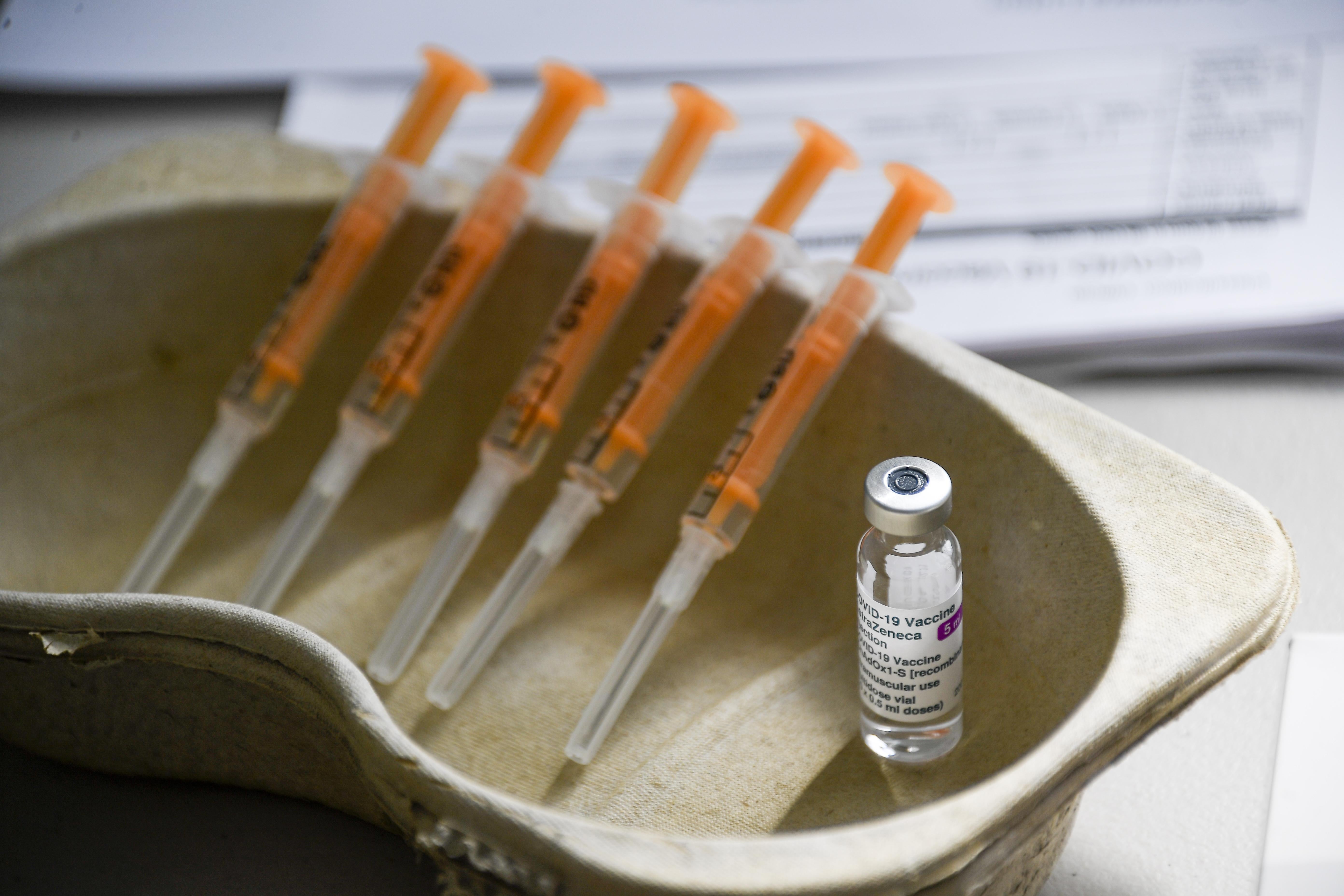
LONDON (AP) — Advanced trial data from a U.S. study on the AstraZeneca COVID-19 vaccine shows it is 79% effective, the company announced Monday in long-awaited research that may answer some questions about the shot’s effectiveness in older populations.
AstraZeneca said its experts also identified no safety concerns related to the vaccine, including a rare blood clot that was identified in Europe. Experts found no increased risk of clots among the more than 20,000 people who got at least one dose of the AstraZeneca shot.
Although AstraZeneca’s vaccine has been authorized in more than 50 countries, it has not yet been given the green light in the U.S. The U.S. study comprised more than 30,000 volunteers, of whom two-thirds were given the vaccine while the rest got dummy shots.
In a statement, AstraZeneca said its COVID-19 vaccine had a 79% efficacy rate at preventing symptomatic COVID and was 100% effective in stopping severe disease and hospitalization. Investigators said the vaccine was effective across all ages, including older people — which previous studies in other countries had failed to establish.
The early findings from the U.S. study are just one set of information AstraZeneca must submit to the Food and Drug Administration. An FDA advisory committee will publicly debate the evidence behind the shots before the agency decides whether to allow emergency use of the vaccine.
Scientists have been awaiting results of the U.S. study in hopes it will clear up some of the confusion about just how well the shots really work.
Britain first authorized the vaccine based on partial results from testing in the United Kingdom, Brazil and South Africa that suggested the shots were about 70% effective. But those results were clouded by a manufacturing mistake that led some participants to get just a half dose in their first shot — an error the researchers didn’t immediately acknowledge.
Then came more questions, about how well the vaccine protected older adults and how long to wait before the second dose. Some European countries including Germany, France and Belgium initially withheld the shot from older adults and only reversed their decisions after new data suggested it is offering seniors protection.
Last week, more than a dozen countries, mostly in Europe, temporarily suspended their use of the AstraZeneca shot after reports it was linked to blood clots. On Thursday, the European Medicines Agency concluded after an investigation that the vaccine did not raise the overall risk of blood clots, but could not rule out that it was connected to two very rare types of clots.
France, Germany, Italy and other countries subsequently resumed their use of the shot on Friday, with senior politicians rolling up their sleeves to show the vaccine was safe.
“These findings reconfirm previous results observed,” said Ann Falsey of the University of Rochester School of Medicine, who helped lead the trial. “It’s exciting to see similar efficacy results in people over 65 for the first time.”
Julian Tang, a virologist at the university of Leicester who was unconnected to the study, described it as “good news” for the AstraZeneca vaccine.
“The earlier U.K., Brazil, South Africa trials had a more variable and inconsistent design and it was thought that the U.S. FDA would never approve the use of the AZ vaccine on this basis, but now the U.S. clinical trial has confirmed the efficacy of this vaccine in their own clinical trials,” he said.
“Though seemingly possibly slightly less efficacious on paper, the AZ vaccine is much cheaper and much easier to store and transport than the Pfizer and Moderna vaccines currently in use in the U.S.”
AstraZeneca said it would continue to analyze the data in preparation for submitting it to the FDA in the coming weeks. It said the data would also soon be published in a peer-reviewed journal.
The remainder of this article is available in its entirety at CBN

